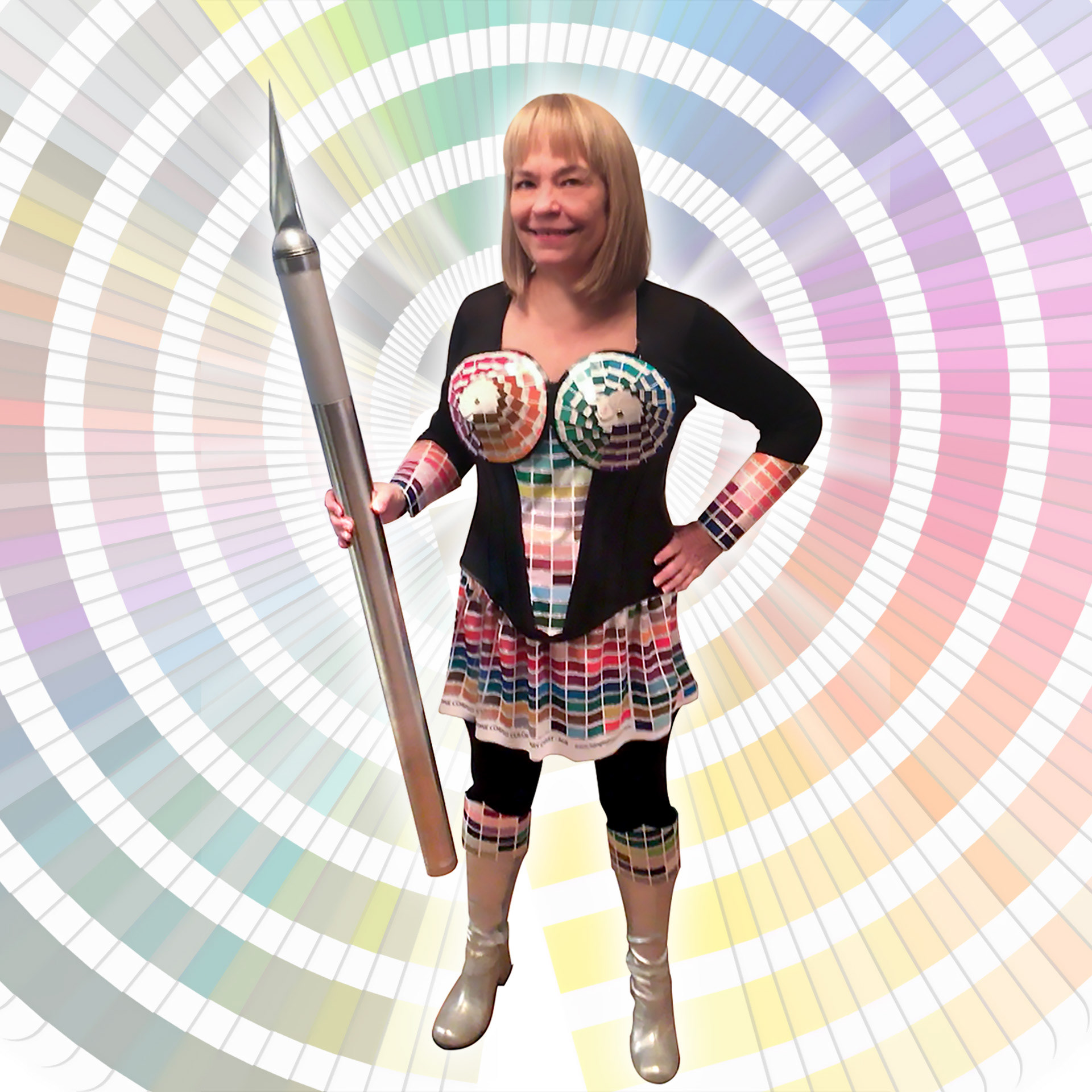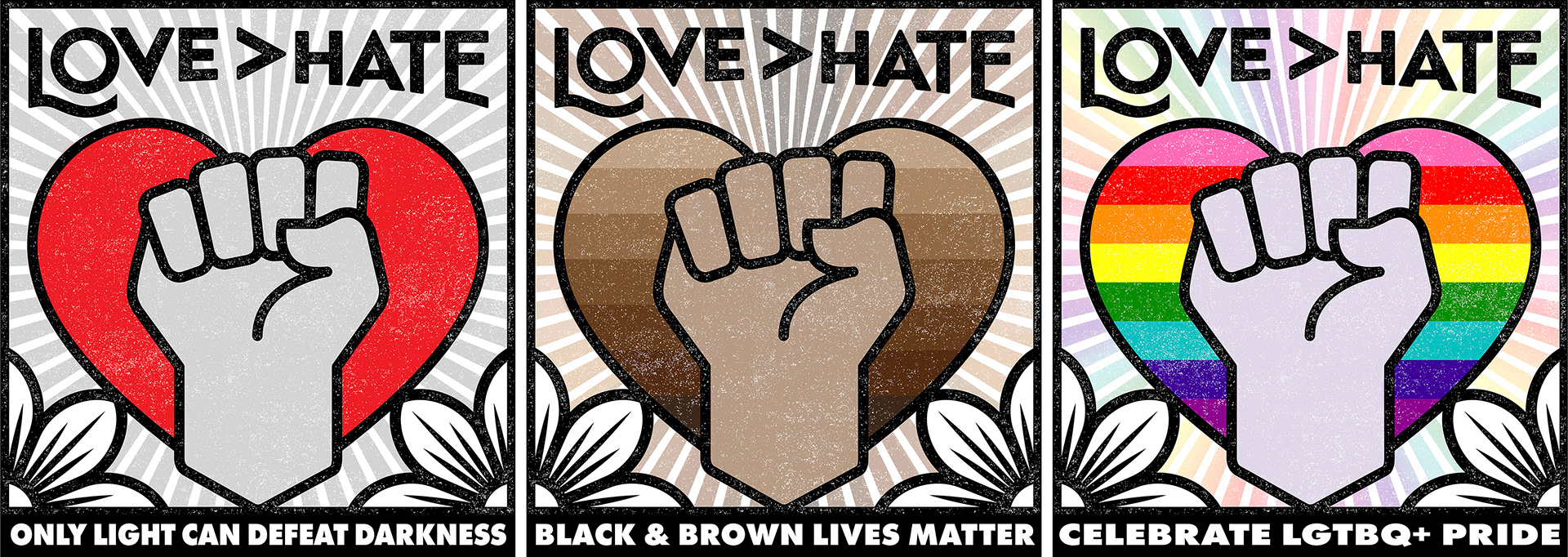Carol Gunn's artwork fights for social causes, including her IWD typography
June 20, 2023
Meet Carol Gunn, a graphic designer and sole proprietor of Gunn Graphics, a woman-owned freelance design company based in Austin, Texas. When her freelance work is done, Carol creates labors of love, many of which feature themes of social justice.
Carol is one of the many talented women who responded to the call-out for entries to the IWD x Typism annual Lettering Challenge. Carol showed her support for the IWD Women Creatives Mission by creating unique artwork that celebrates the IWD 2023 #EmbraceEquity campaign theme.
Watch the video of how Carol created her fabulous design here.
Promoting social issues through her artwork

An expert in The Adobe Creative Suite, Photoshop, Illustrator, and InDesign, Carol specializes in designing for print, as well as online artwork for client websites and social media promotions for her retail products. Just for fun, Carol also likes to design and create costumes.
Much of her personal work focuses on social causes, like Look What Happens When you Don’t Vote, Change the World and her most popular design, Love Is Greater Than Hate.
Carol accepts freelance jobs for illustration and print design, especially event posters, T-shirts, and book cover design. "And if you'd like an upraised fist in your project, so much the better!" adds Carol.
Carol discusses her #EmbraceEquity design, and she explains what International Women's Day and the Embrace Equity campaign theme mean to her.
Creating a unique custom typeface
Carol's design features the IWD Embrace Equity theme in a unique custom typeface. Carol created the type in a classic style with serifs and an embossed inline; a style passed down from the ancient Romans who chiseled it onto temple walls and halls of government.
"Since the concept of equity requires public acceptance and legislation, I wanted to create this custom type with a similar feeling of dignity and timelessness," explains Carol.
"The vines represent a spirit of growing, reaching out, intertwining, and embracing the type. The pink flowers represent women; the blue flowers represent men (because more rights for women does not mean fewer rights for men); and the purple flowers represent all gender identities between the pink and the blue," adds Carol.
Explaining her design process
Carol's process for creating the artwork included drawing several rough thumbnails and quickly deciding on one.
"In a looser design that would more closely resemble lettering done with a brush or pencil, I might have made a more detailed sketch by hand and then traced it in Illustrator to clean it up. But the classical constraints of this design made it perfect to create from scratch in Illustrator with its exact guidelines, geometric shape tools, and precise pen tool," comments Carol.
"After drawing the outlines and filling them with flat colour in Illustrator, I exported paths and pixels to Photoshop, where I added depth, highlights, and shadows."
Understanding the meaning of equity
When asked what the IWD Embrace Equity theme means to her, Carol says: "Despite my long history of supporting equal rights for women and other minorities, I am almost embarrassed to admit that I did not realize the difference between equality and equity. So your campaign has informed at least one person - let’s keep that going!"
Fighting social justice through IWD
When Carol first began supporting women’s causes, there was no internet. Since then, Carol has seen the power of social media in spreading ideas worldwide.
"The IWD website is a rich resource for all fighting for social justice. As a graphic designer, I especially appreciate IWD’s support of women creatives," adds Carol.
Sharing her views about gender issues

Finally, Carol shares her views about gender issues relating to the world of women and typography.
"My experience with typography began with my first job in the art department of a newspaper, back when gender-based inequity was so institutionalized as to be considered a way of life. Even though the Supreme Court had already passed its landmark ruling that discrimination “based on sex” was unconstitutional, entrenched attitudes took a long time to begin changing, especially here in the Deep South," explains Carol.
"When we raised the issue that women at the newspaper were paid less than men doing the same job, our supervisor said, “Men have families to support, so they need to be paid more.” We just stood there, gob-smacked! But that is the moment s**t got real. This was when it hit me that women’s “liberation”, as it was called then, wasn’t just a hippy-dippy, touchy-feely nice idea, but these were our lives and our livelihoods we were talking about! And so began my years-long fight for women’s rights that has lasted to this day," adds Carol.